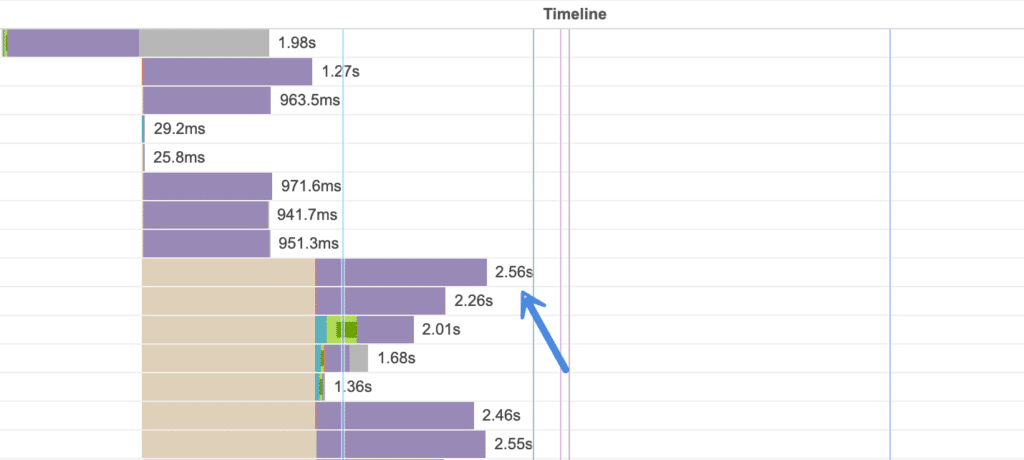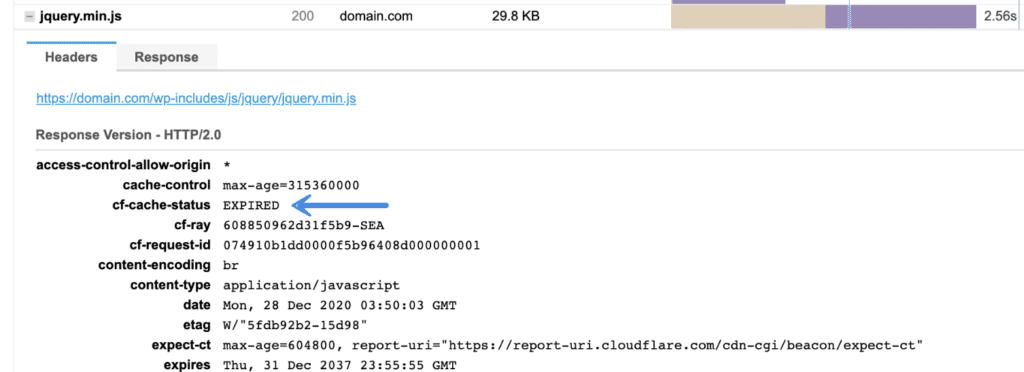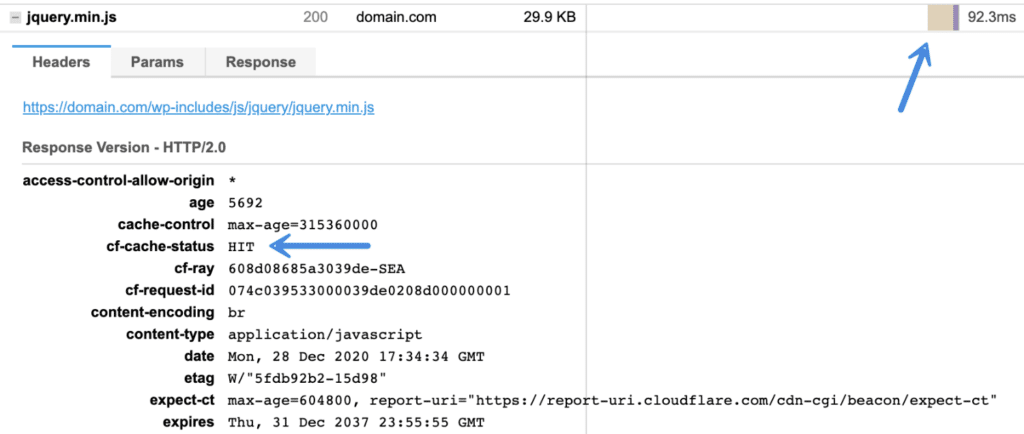We see many running website speed tests the wrong way. When doing so, it might appear that your website is slowing down, but really, it’s just a matter of better understanding how to use the tools. We know it can be confusing, so hopefully, some of these tips below will help.
In these examples below we are using GTmetrix.
Checking your speed test data
If you see long delays like this below it might mean that you’ve made changes to your site recently and the cache on your site has been invalidated or expired.

You can check the header of the request to verify it.
Click on the request itself and under the “Headers” tab look for anything related to cache status. This will vary a bit based on your hosting provider or CDN. In this example, you can see cf-cache-status . This is a header coming from Cloudflare. You see that the value is EXPIRED . This means the cache needs to properly build back up. Until then, the long delays will occur and make it look like your website is slower.

What can you do?
Whenever you make big changes to your website, especially when doing performance optimization, you need to run a website speed test multiple times. Three times is generally a good number. This will ensure all of your assets cache again. This is also reflective of what visitors will typically see when they visit your site.
Below is an example of the same request after it’s serving from cache. The cache header value now shows HIT. And as you can see, the time for the request dropped significantly.

The same also applies to other speed testing tools such as PageSpeed Insights. If you don’t run a speed test multiple times, you might get a “Reduce initial server response time” warning.